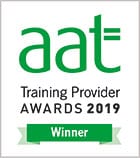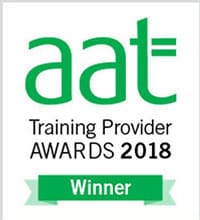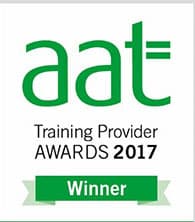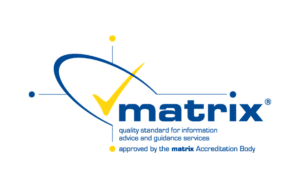Apprenticeships and Funding
What Apprenticeships are offered?
The new Apprenticeship Standards provide an excellent opportunity to add real value to the training received by your staff, funded through the Apprenticeship scheme.
We offer the following apprenticeships:
- Accounts/Finance Assistant Apprenticeship (Level 2) (AAT)
- Assistant Accountant Apprenticeship (Level 3) (AAT)
- Professional Accounting Technician Apprenticeship (Level 4) (AAT)
- Accountancy / Taxation Professional Apprenticeship (Level 7) (ACA)
Assessment of these Apprenticeships will be by an “End Point Assessment” and will be graded “Pass” or “Distinction”.
Under our programme, this will include two elements:
The Knowledge Assessment and Synoptic exams will test knowledge acquired over the period of the apprenticeship.
Based on the knowledge, skills and behaviours developed in the workplace over the period of the Apprenticeship.
How is the Apprenticeship Delivered? What Training is Provided?
This is a blended programme of learning. Our Level 2 materials comprise on-line interactive presentations with voice-overs and tons of practice activities. At Levels 3 and 4 we introduce more traditional study manuals alongside the on-line materials.
Apprentices are provided with a detailed learning plan and programme of study, covering both their AAT exam units and the Apprenticeship knowledge, skills and behaviours elements.
Their personal tutor will arrange a weekly Teams catch up with them to run through any issues arising from their studies during the previous week, provide one-to-one support on anything they “don’t get” in their studies and plan their studies for the coming week, ensuring they are complying with the “off the job training requirements” – see below. In addition, apprentices can liaise directly with their tutor during the week, e.g. to submit a progress test for marking and feedback.
Although the majority of our apprentices are spread across the country and study remotely, we run tutor supported sessions at our venues in Exeter, Falmouth, Plymouth and Taunton. Some of our apprentices attend every week for the whole day, some for half a day, and some as and when they need to.
Apprenticeship Key Points:
The requirement to comply with a minimum of 6 hours per week OTJT (the 20% rule) has been a thorny one and employers have adopted differing approaches to dealing with it. However, AELP (the Association of Employment and Learning Providers) have issued guidance on the application of the rule, which will hopefully make compliance much easier to plan for and to evidence.
Sections of the guidance are quoted below. Do please ask us if you would like a copy of the full guidance emailed to you and would like to discuss its implementation.
“Off-the-job training is defined as “training received by the apprentice, during the apprentice’s normal working hours, for the purpose of achieving their apprenticeship. It is not training delivered for the sole purpose of enabling the apprentice to perform the work for which they have been employed. [It must be…] directly relevant to the apprenticeship framework or standard, teaching new knowledge, skills and behaviours required to reach competence in the particular occupation. (ESFA 2017/18 Apprenticeship Funding Rules)”
“When someone is in a new job or in a job where there is significant training required to be fully productive then even doing ‘normal’ tasks to get up to speed can feel like “training”. Where this training also teaches the knowledge, skills and/ or behaviours required by the apprenticeship it can be included as off-the-job training. However, training that is only required for the job and not relevant to the apprenticeship cannot be included.”
“The expectation is that off-the-job training is specifically to support the development of new behaviours and also skills and knowledge linked to the actual vocational occupation.”
- It will take 13 plus months to complete the Accounts / Finance Assistant Apprenticeship (Level 2).
- It will then take between 13 and 16 months to complete the Assistant Accountant Apprenticeship (Level 3) (dependant on how much level 2 learning is required).
- It can then take 13 to 18 months to complete the Professional Accounting Technician Apprenticeship.
- The programme is effectively “Roll-on-Roll-off”, meaning the Apprenticeship can start at any time throughout the year, not just September.
- The Accountancy / Taxation Professional Apprenticeship (Level 7) will take between 3.5 and 4 years to complete.
- Apprentices must be provided a minimum of 6 hours per week from their paid hours for off-the-job training (this used to be called "The 20% rule").
- The employer contribution to the cost of the training is now limited to 5%. For those who are levy payers, this 5% contribution is only on any balance remaining after their levy has been utilised. This means that, for example at Level 4 the course cost is limited to a maximum of £400 + VAT, spread out over the duration of the apprenticeship.
- Non-levy paying small businesses don't need to pay this 5% if their apprentice is aged 16-21 when they start their apprenticeship. .
The hours spent on off-the-job training do not have to be evenly spread on a weekly or even a monthly basis and could be front end loaded or rear end loaded.
Because the Apprenticeship Standards cover so many generic knowledge, skills and behaviours you should be able to relate much of this training to the Standards and include it in the record of off-the-job training.
When you take on a new member of staff, practically everything they do will be new to them as they will be developing new knowledge, skills or behaviours. This should therefore be recorded as “off the job training” (o.t.j.t.) on our training logs. A high proportion of their total o.t.j.t might therefore be achieved in their first 3 or 4 months in the office and/or after moving departments or taking on a different role.
We will work closely with you and your apprentices to draft an outline plan of how this o.t.j.t. will be achieved over the period of the Apprenticeship. An added benefit of getting apprentices to record this “in office” o.t.j.t. is that they will better recognise that they have learned new skills and behaviours in the office and will value this more. This is, of course, the traditional training route in the profession – when one took one’s Articles and most learning was performed in the office.
If you would like to discuss the application of the rules to your own situation, do please let us know and we will get back to you. Please call 01392 435349 or email [email protected]
95% of an apprentice’s training costs can be covered by apprenticeship funding. This increases to 100% if they are aged 16-21 and their employer is a non-levy paying small business.
The Apprenticeship Levy applies to employers with payroll costs of more than £3 Million p.a. These employers will pay a levy of ½% on the excess over £3 million via the PAYE system into a digital apprenticeship account. This is calculated on a monthly basis.
They can then use this to contribute to any apprenticeship training purchased. If not used, these funds will “expire” and so there is therefore a clear incentive to employ apprentices. “Use it or lose it.”
If the levy paid into their Apprenticeship Service account has been fully utilised, 95% of the additional training cost is covered by a contribution from the government and the remaining 5% from the employer.
Employers with payroll costs of less than £3 Million p.a. will not pay the Apprenticeship Levy. However, since January 2020, they have been able to register on the Digital Apprenticeship Service to enable us to access funding in the same way as for levy paying employers. The employer contribution to the course fees are currently limited to 5%.
However, as mentioned above it could be possible to access free apprenticeship training if the apprentice is aged up to 21 and the employer is a small business.
Employers who do not pay the Apprenticeship Levy can reserve their funding with the Apprenticeship Service three months before their apprentice’s expected start date. NB This period was reduced from six to three months from 1 November 2021. Employers can extend the three month period by a further two months, if they require more time for the apprentice to start. However, the reservation will expire at the end of the extended period if no commitment has been made with the Apprentice Service by then.
In addition, if the apprentice is aged 16-18 at the start of the apprenticeship, the employer receives an incentive of £1,000, payable half after 3 months employment and half after 12 months.
The funding aspect of training an apprentice can be a little daunting from the outset, but don’t worry we can explain how you can access the funding and what’s involved during each step of the process.
The regulations above are correct at the time of writing and are subject to change at the discretion of the government.











